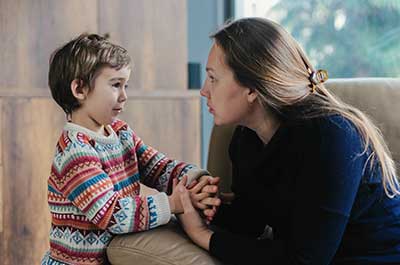Your child has been invited to their first slumber party. But are they ready? And are you ready?
There are many factors to consider before deciding to send your child off to sleep at another family’s home. Stacy Leatherwood, M.D., a pediatrician at Henry Ford Health, offers advice on how to decide whether sleepovers are right for your family—and what to know about sleepover safety.
Are Sleepovers Safe? Questions to Consider
Some families don’t feel comfortable with overnights elsewhere. If you’re one of them, it’s not unreasonable to have a no-sleepover policy, Dr. Leatherwood says.
If you do choose to allow overnights, there are things to think about before deciding to RSVP “yes.”
- Who’s hosting? “For me, the number one thing to consider is how well you know the family,” Dr. Leatherwood says.
- What adults will be there? Ask whether the parents will be home the whole time, and whether any other adults will be present during the party.
- What kids will be there? Ask who is invited, and whether any siblings (and possibly siblings’ friends) will be there. If older kids are around, it’s important to know how they’ll be supervised.
- What kind of supervision will be provided? Will the kids be left to their own devices in the basement, for example, or will parents be checking in frequently? Are there enough trusted adults to supervise the number of children?
- Is the home safe? If your child has food allergies, make sure the host parents are aware and have a plan to avoid dangerous ingredients. Dr. Leatherwood recommends asking whether the family keeps weapons or alcohol in the home (and if so, whether they are stored safely). She also recommends asking whether the family has a pool or plans to swim at the party, since unsupervised swimming can be dangerous even for older kids.
Try to push past any awkwardness you might feel asking the host family for more information. “If you don’t feel safe asking these questions, is it really safe for your child to spend the night there?” Dr. Leatherwood asks.
What’s the Right Age for Sleepovers?
There’s no magical age when your child is old enough for an overnight. A better question to ask: Is my child mature enough for a sleepover? It’s important to trust that they’ll make responsible decisions, even in the face of peer pressure, Dr. Leatherwood says.

Need A Pediatrician?
You also want to be sure that your child can communicate responsibly with you, she adds. “If something goes awry, do they know how to get hold of you? Can they clearly articulate what happened?” she asks.
Planning for a Sleepover
Before an overnight, prep with your child so they know what to expect—and what you expect from them. Dr. Leatherwood shares these pointers:
- Have a safety talk: Talk with your child about possible scenarios they could encounter, including inappropriate sexual behavior and substance use. How would they respond to an adult who makes them feel uncomfortable? What would they do if friends urge them to use drugs or alcohol or make a risky choice during a game of Truth or Dare? Discuss what your child should do if anything scary or worrisome happens.
- Plan to check in: Your child can roll their eyes—but you can stay connected without helicoptering. Let your child and the sleepover hosts know what time you’ll plan to call for a quick check-in during the party.
- Have a backup plan: Children might be embarrassed or uncomfortable asking to leave a party if their friends are listening in. To avoid that risk, you and your child can come up with a code word before the event. If they feel unsafe, uncomfortable, or just want to come home for any reason, they can text or call you with the code and you’ll come pick them up. They might say, for example “I forgot to feed the cat,” or “Did you find my sneakers?” If you get the code, you can make up an excuse and explain your child can’t stay after all.
- Make a promise: Promise that you’ll answer the phone if your child calls or texts, and that you’ll come get them if they want to come home—even in the middle of the night. If they call you to leave an unsafe situation, don’t punish them for what was going on. Showing you trust them to be honest and make good decisions will keep important lines of communication open.
How to Say No to a Sleepover
Just because your child is invited to a party doesn’t mean you have to let them go. “If you have a no-sleepover rule, it can help to start telling your child your family rule when they’re younger, so it doesn’t come as a surprise later,” Dr. Leatherwood says.
It’s also fine to reevaluate your decision. Maybe you say no to sleepovers with kids you don’t know well, but allow overnights with a few trusted families. Or you might say no sleepovers at age 9 but revisit the choice at age 12 or 14. If you feel more comfortable at your own home, you could offer to host the sleepover in an environment where you feel in control.
Worried about your child being left out? Look for ways to make other plans. You might allow your child to stay at the party until 10 or 11, for example. You could even bring them back the next morning for breakfast with their friends. “They still get to enjoy the festivities, but you aren’t compromising your family’s values and safety concerns,” she says.
What works for one family may not work for another, and that’s okay. What’s important is that you make choices that you feel good about. “Peace of mind goes a long way,” Dr. Leatherwood says.
Reviewed by Stacy Leatherwood, M.D., a pediatrician at Henry Ford Health.



